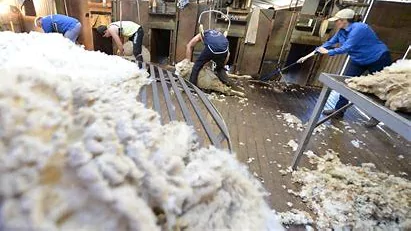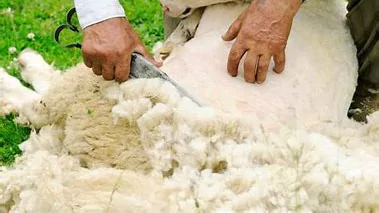About Wool Production
Mainly obtained from sheep, wool is an important textile fiber used all over the world. Whether it’s for clothes, canvas, cloth, or even blankets, wool is an important material that supports many industries and projects. This natural product has many advantages, such as being organic, easy to clean, and even having a natural structure that holds air, which is good for heat retention.
As a result, the global wool industry is worth more than $30 billion, and about two million tons of wool are grown and sold annually. However, this is not surprising, since humans have been working with wool for over 10,000 years.
The first records of humans working with wool go back to 10,000 BC during the Stone Age when fibers were washed, woven and even worn. A few hundred years later, the egg has gained popularity all over the world, with European countries importing sheep from the East. A testament to its amazing quality, this product has remained one of the world’s first used fibers. That said, although it is a strange thing, with a great demand, which creates all the woo
top wool producing countries


China – 333,624 Tons –
Wool producing countries
Remarkably, China has become the top country in terms of wool production.
After being second in production for many years, their production in 2020 was an amazing 333,624 tons of wool, representing almost 19% of the world’s wool! The staggering numbers testify to China’s dedication to its textile industry and the vast sheep farms that spread throughout its countryside. Interestingly, despite being the leader in production, China is also one of the fur importing countries. In fact, recent records show they imported over $1.5 billion worth of wool last year, more than 40% of which came from Australia – which they dethroned a few years ago. go. No wonder they have achieved such success in this industry!
Australia – 283,794 tons – wool producing countries
Australia may not be at the top of the list of world wool producers, but it still has a huge influence on the wool market. With 71.6 million sheep shorn across the country plus the Northern Territory in 2021-22, Australia is the world’s largest exporter of wool. His name is good; Its perfect climate means Australia is ideal for raising merino sheep, as the fine merino wool they produce is proven to be in high demand around the world. This shows a good future for those who invest in this market, which can be especially useful after the epidemic in promoting economic growth.
New Zealand – 151,192 Tons
Since the 1950s, New Zealand has had an impressive presence in the world’s wool industry, but it has come down to a dramatic increase in sheep population in the same years.
The Korean War triggered a surge in these products from the United States itself, which allowed New Zealand to profit greatly by tripling the price of wool overnight. This led to an astonishing 70 million sheep on his farm in the late 1900s.
Unfortunately, such growth cannot be demonstrated forever, and by 2020 the number is about 26 million – since it has been reduced by more than half since the record number. Also, many of these sheep are sold as meat instead of being used for wool, which has contributed to the slow decline in wool production today.
Türkiye – 79,754 Tons – Wool producing countries
Turkey is known for its large textile industry, and wool is one of the fibers used in this market.
In 2020, Turkey’s wool production reached 79,754 tons (4% of world production). With more than 35,000 textile companies involved in the wool industry in all areas of planning and production, it provides many jobs for individuals in the country.
This industry has been growing steadily since 2009 and is expected to continue growing in the coming years as Turkey’s presence in global garment exports remains strong.
UK and Northern Ireland – 70,967 tons
The UK has a long and rich history, especially when it comes to wool production. Beginning with the importation of sheep from the Middle East in medieval England, wool became a major industry that led the country to prosperity in the 13th and 15th centuries.
This was reinforced by wars such as the Hundred Years’ War, which allowed weavers to flourish in the region, producing some of the finest textiles in the world. the world. Today there is no shortage of interested farmers: about 45,000 sheep farmers can be found in the UK and Northern Ireland, taking care of 34 million sheep and producing 70,000 of wool each year.
So, although centuries have passed since its origins in medieval England, the UK’s contribution to the development of its woolen industry has by no means waned.

